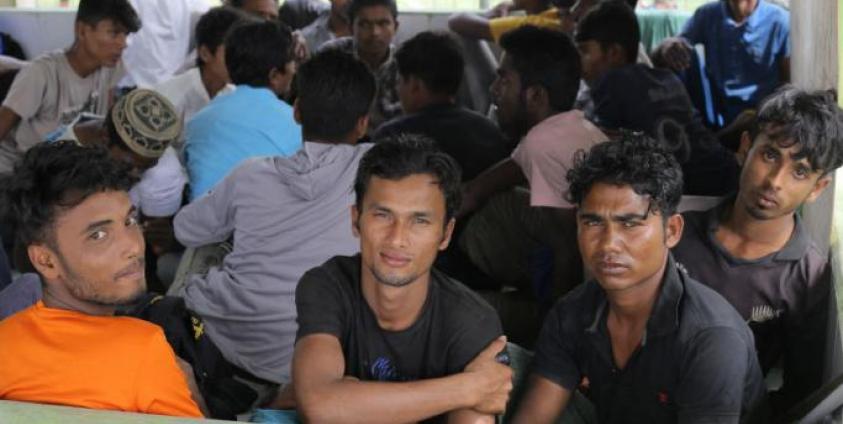The Myanmar military launched a ferocious crackdown against the country's Rohingya Muslim population in 2017, driving around 740,000 into neighbouring Bangladesh.
On Monday US Secretary of State Antony Blinken officially announced Washington's decision to designate that crackdown a genocide.
Here are key dates in the crisis.
- Army operations -
On August 25, 2017, Rohingya militants stage coordinated attacks on police posts in Myanmar's Rakhine state, killing at least a dozen officers.
The army retaliates with operations in Rohingya villages ostensibly to flush out insurgents.
It says it killed 400 rebels but opponents say most of the dead were civilians.
The United Nations says at least 1,000 people lost their lives in the first two weeks of the military operations.
- Refugee exodus -
By September 5 more than 120,000 Rohingya have fled into Bangladesh, overwhelming its ill-equipped refugee camps.
There are already at least 200,000 Rohingya in Bangladesh from previous waves of violence.
- Suu Kyi breaks silence -
International anger mounts against Myanmar. Soldiers are accused of razing Rohingya homes and some world leaders allege "ethnic cleansing".
In her first statement on the crisis, Myanmar's civilian leader and Nobel Peace laureate Aung San Suu Kyi pledges on September 19 to hold rights violators to account but refuses to blame the army.
- Possible 'genocide' -
Bangladesh and Myanmar on November 23 agree to start repatriating refugees.
But the UN High Commissioner for Refugees says conditions are not in place for their safe return and the process halts.
UN human rights chief Zeid Ra'ad Al Hussein on December 5 warns of possible "elements of genocide" and calls for an international investigation.
- Courts and sanctions -
On August 25, 2018, tens of thousands of Rohingya refugees stage protests to mark the first anniversary of their exodus.
UN investigators call for the prosecution of Myanmar's army chief and five other top military commanders for genocide, crimes against humanity and war crimes.
In November an attempt to repatriate 2,260 Rohingya fails as they refuse to leave without guarantees for their safety.
- Reporters jailed -
On September 3, two Reuters journalists who are accused of breaching Myanmar's state secrets law while reporting on a Rohingya massacre are jailed for seven years.
They will spend more than 500 days behind bars before being released on a presidential pardon.
- US sanctions -
On July 16, 2019, Washington announces sanctions against Myanmar's army chief and three other top officers.
About 3,500 Rohingya refugees are cleared to return home but none turn up to make the journey on August 22.
- Legal challenges mount -
On November 11 The Gambia files a lawsuit at the International Court of Justice (ICJ) accusing Myanmar of genocide for its treatment of the Rohingya.
Three days later the separate Hague-based International Criminal Court (ICC) green-lights a full investigation into the persecution of the Rohingya.
In the same week, a third case is filed by rights groups in Argentina under the principle of universal jurisdiction.
- Suu Kyi in court -
On December 10 The Gambia lays out its case at the ICJ with Suu Kyi personally leading Myanmar's defence.
She refutes accusations of genocide, denying "misleading and incomplete" claims and insisting Myanmar is dealing with an "internal armed conflict".
She admits the army may have used excessive force.
- Court ruling -
Delivering its ruling on January 23, 2020, the ICJ orders Myanmar to take urgent steps to prevent alleged genocide and to report back within four months.
- No jurisdiction -
In February 2021 Myanmar's legal team -- minus Suu Kyi, who is under house arrest following a military coup -- argues the court has no jurisdiction over the case, and must throw it out before it moves on to substantive hearings.
The ICJ judges must now decide whether the court has the jurisdiction to proceed.
- US calls genocide -
The United States officially declares that the violence amounted to genocide, saying there was clear evidence of an attempt to "destroy" the Rohingya.
The US move did not come with new direct repercussions against the Myanmar regime, but Washington says it will support efforts to bring cases of crimes against humanity against the regime.







